
Vila Real: The Heart of Trás-os-Montes
Nestled in the picturesque Trás-os-Montes region, Vila Real is a hidden gem waiting to be discovered. This charming city is known for its rich history, stunning landscapes, and warm hospitality. As you wander through its streets, you'll be transported back in time with its well-preserved architecture and historical landmarks. Vila Real boasts a unique blend of natural beauty and cultural heritage. The city is surrounded by rolling hills and vineyards, making it a perfect destination for nature lovers and wine enthusiasts. A visit to the nearby Douro Valley, a UNESCO World Heritage site, offers breathtaking views and a chance to sample some of Portugal's finest wines. The city's crown jewel is the Mateus Palace, an exquisite example of Baroque architecture. Its beautifully manicured gardens and impressive interiors provide a glimpse into the opulent lifestyle of Portuguese nobility. Don't miss the opportunity to explore the narrow streets of the historic center, where you'll find charming shops, cafes, and traditional restaurants serving delicious local cuisine. Vila Real is also a gateway to the natural wonders of the region. The Alvão Natural Park, with its rugged landscapes and pristine waterfalls, offers excellent hiking and outdoor activities. Whether you're looking to immerse yourself in history, indulge in culinary delights, or simply enjoy the great outdoors, Vila Real has something for everyone.
Local tips in Vila Real
- Visit the Mateus Palace early in the morning to avoid crowds and enjoy a peaceful tour.
- Wear comfortable shoes as the historic center has cobblestone streets that can be uneven.
- Try the local specialty, 'covilhetes,' a savory meat pie that is a must-try for food lovers.
- Rent a car to explore the surrounding Douro Valley and Alvão Natural Park at your own pace.
- Check the local calendar for festivals and events, as Vila Real hosts several throughout the year that showcase its vibrant culture.
Vila Real: The Heart of Trás-os-Montes
Nestled in the picturesque Trás-os-Montes region, Vila Real is a hidden gem waiting to be discovered. This charming city is known for its rich history, stunning landscapes, and warm hospitality. As you wander through its streets, you'll be transported back in time with its well-preserved architecture and historical landmarks. Vila Real boasts a unique blend of natural beauty and cultural heritage. The city is surrounded by rolling hills and vineyards, making it a perfect destination for nature lovers and wine enthusiasts. A visit to the nearby Douro Valley, a UNESCO World Heritage site, offers breathtaking views and a chance to sample some of Portugal's finest wines. The city's crown jewel is the Mateus Palace, an exquisite example of Baroque architecture. Its beautifully manicured gardens and impressive interiors provide a glimpse into the opulent lifestyle of Portuguese nobility. Don't miss the opportunity to explore the narrow streets of the historic center, where you'll find charming shops, cafes, and traditional restaurants serving delicious local cuisine. Vila Real is also a gateway to the natural wonders of the region. The Alvão Natural Park, with its rugged landscapes and pristine waterfalls, offers excellent hiking and outdoor activities. Whether you're looking to immerse yourself in history, indulge in culinary delights, or simply enjoy the great outdoors, Vila Real has something for everyone.
When is the best time to go to Vila Real?
Iconic landmarks you can’t miss
Fundação da Casa de Mateus
Experience the enchanting baroque beauty and rich history of Fundação da Casa de Mateus, a must-visit cultural gem in Vila Real, Portugal.
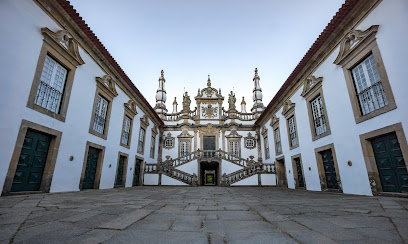
Vila Real Bus Terminal
Explore Northern Portugal effortlessly from Vila Real Bus Terminal, your gateway to scenic beauty and cultural treasures.
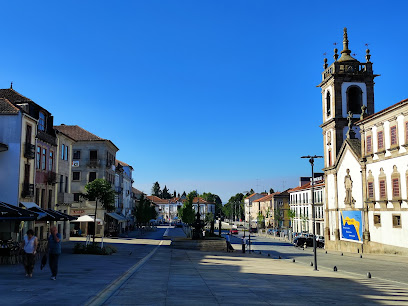
Jardim da Carreira
Explore the beautiful Jardim da Carreira, a serene park in Vila Real offering lush scenery, vibrant flower displays, and a tranquil escape in nature.
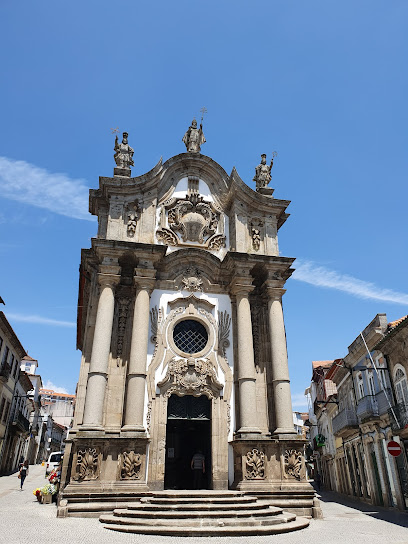
Cathedral of Vila Real
Discover the architectural splendor and spiritual tranquility of the Cathedral of Vila Real, a must-visit landmark in Portugal’s historical landscape.
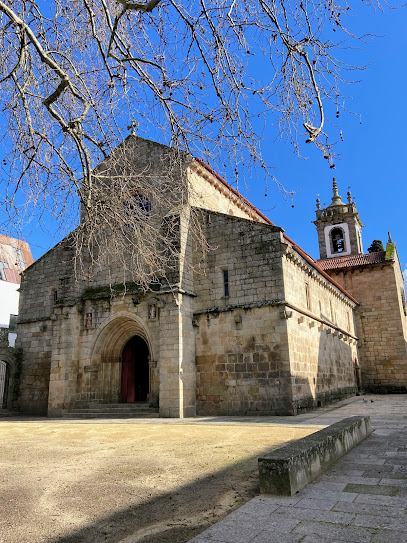
Miradouro da Vila Velha
Experience breathtaking views and serene landscapes at Miradouro da Vila Velha, a must-visit scenic spot in Vila Real, Portugal.
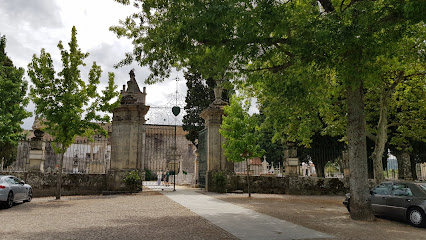
Capela Nova
Explore the tranquil beauty and rich history of Capela Nova, a stunning chapel in Vila Real, Portugal, that captivates visitors with its serene ambiance.
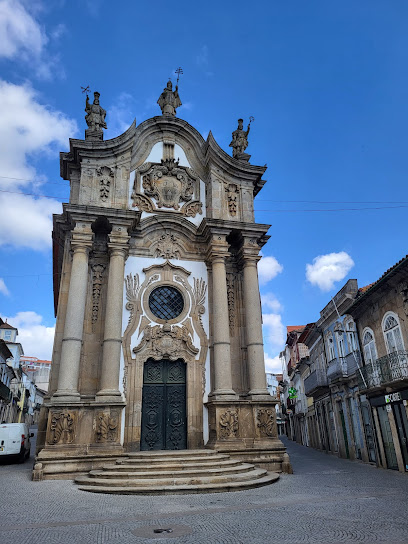
Panoias Sanctuary
Explore the Panoias Sanctuary, a stunning heritage site in Vale de Nogueiras showcasing remarkable ancient monuments and rich cultural history.
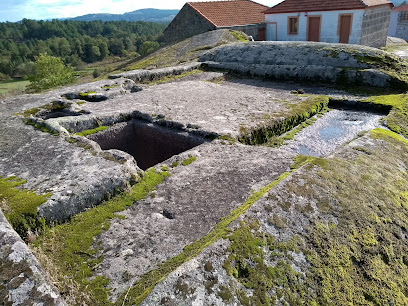
Museu da Vila Velha
Explore the cultural treasures of Vila Real at Museu da Vila Velha, where history and art intertwine in a captivating experience.
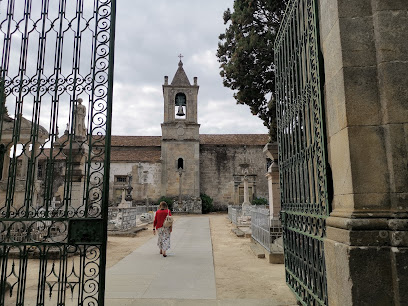
Casa do Prado Guesthouse
Experience the charm of Casa do Prado Guesthouse in Vila Real, a tranquil retreat surrounded by stunning landscapes and rich Portuguese culture.
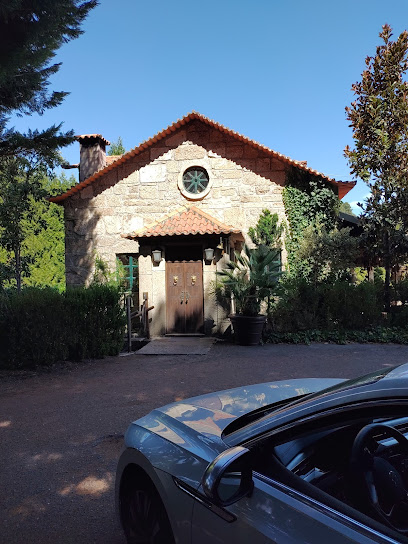
Miradouro de Muas, Vila Real
Discover the stunning vistas of Douro Valley at Miradouro de Muas, the perfect viewpoint for breathtaking landscapes and peaceful moments.
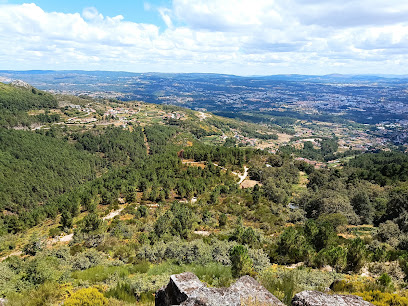
Diogo Cão House
Explore the historic Diogo Cão House in Vila Real, a stunning heritage building that reflects Portugal's rich maritime legacy and architectural beauty.
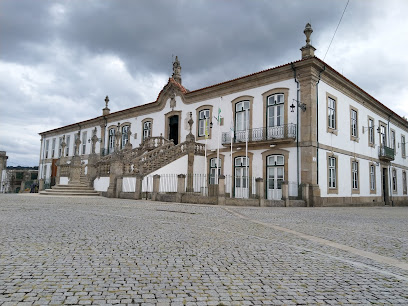
Centro de Ciência de Vila Real
Discover the interactive world of science at Centro de Ciência de Vila Real, where curiosity meets fun in an engaging environment for all ages.
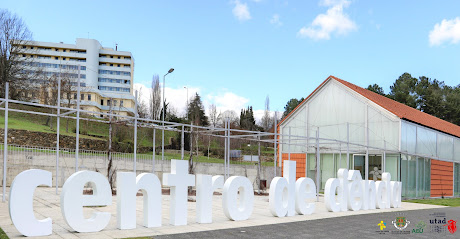
Estátua de Carvalho Araújo
Explore the Estátua de Carvalho Araújo, a stunning historical landmark in Vila Real, Portugal, and immerse yourself in the local culture and history.
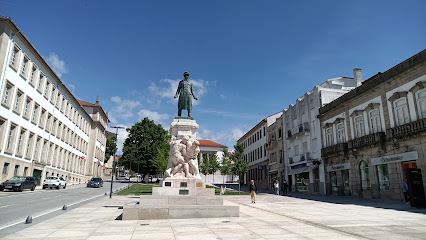
Visit Imobiliária
Discover Vila Real through Visit Imobiliária, your trusted partner in exploring authentic Portuguese real estate and lifestyle.
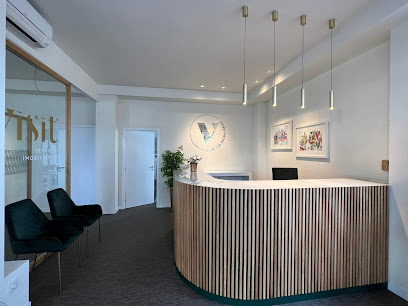
Pelourinho de Vila Real
Discover the Pelourinho de Vila Real, a stunning architectural gem that embodies the rich history and cultural heritage of Portugal.
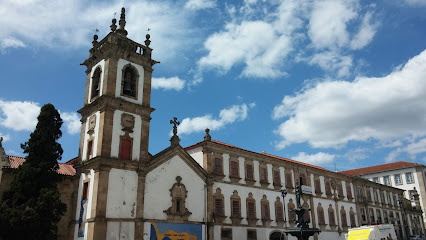
Unmissable attractions to see
Guimarães Castle
Discover Guimarães Castle, a historic fortress in Portugal that embodies the country's rich medieval heritage and stunning architectural beauty.
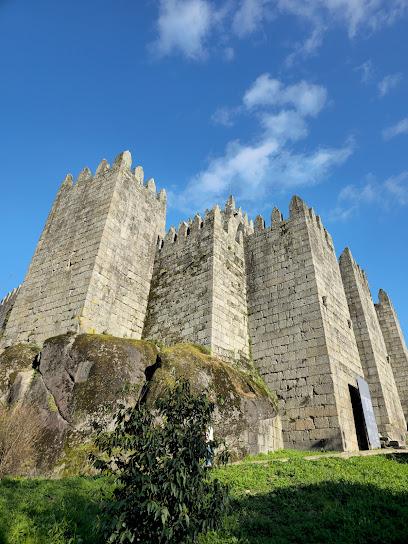
Santuário de Nossa Senhora dos Remédios
Discover the stunning Santuário de Nossa Senhora dos Remédios in Lamego, a beautiful Catholic sanctuary with breathtaking views and rich history.
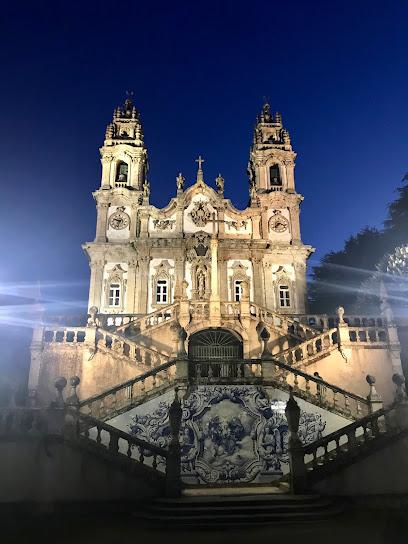
Sanctuary of Penha
Explore Varanda de Pilatos in Guimarães, a peaceful sanctuary with stunning views and rich cultural heritage, perfect for travelers seeking tranquility.
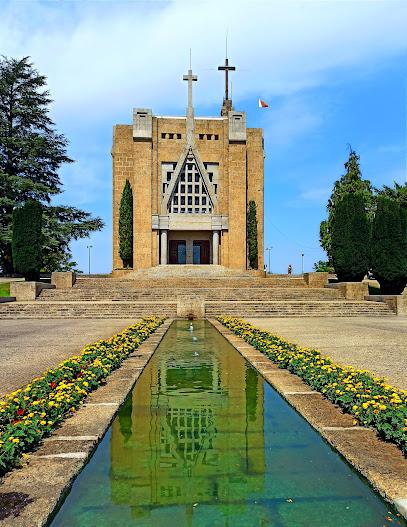
Palace Duques de Bragança
Explore the rich history and breathtaking architecture of the Palace of the Dukes of Braganza in Guimarães, a must-see landmark in Portugal.
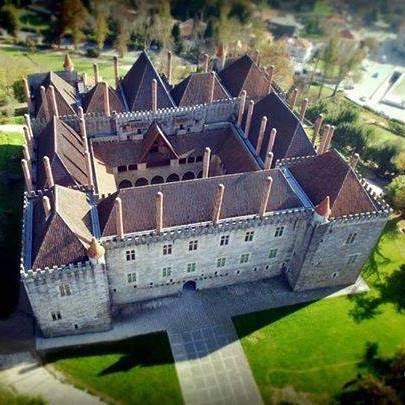
Fundação da Casa de Mateus
Explore Casa de Mateus in Vila Real: A stunning baroque masterpiece with beautiful gardens and rich cultural heritage.
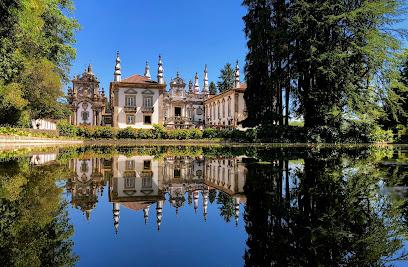
Largo do Toural
Explore the vibrant Largo do Toural in Guimarães, a historical landmark rich in culture, stunning architecture, and lively local atmosphere.
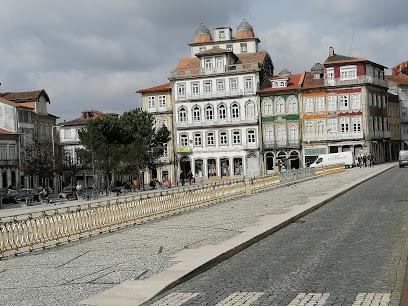
Aqui Nasceu Portugal
Discover Aqui Nasceu Portugal, the historical landmark where the nation was born, and immerse yourself in Guimarães' rich cultural heritage.
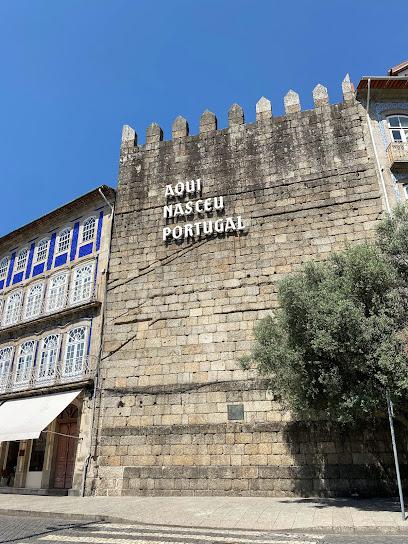
Pena Aventura
Explore the thrilling rides and family-friendly attractions at Pena Aventura, a premier amusement park in Portugal's stunning Ribeira de Pena.
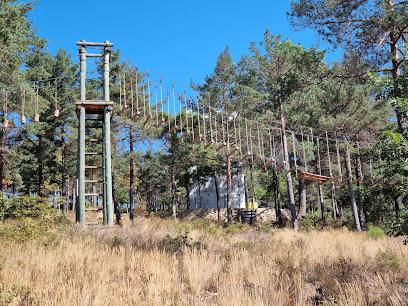
Miradouro São Leonardo de Galafura
Discover the breathtaking beauty and rich cultural heritage of Peso da Régua, the heart of Portugal's Douro Valley and a haven for wine enthusiasts.
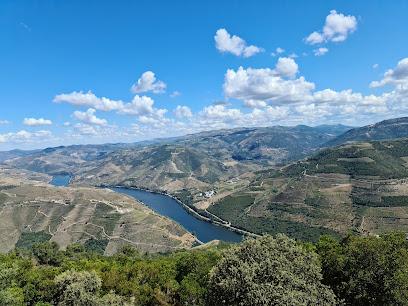
Douro Museum
Explore the Douro Museum in Peso da Régua and delve into the rich heritage and viticulture of the stunning Douro Valley.
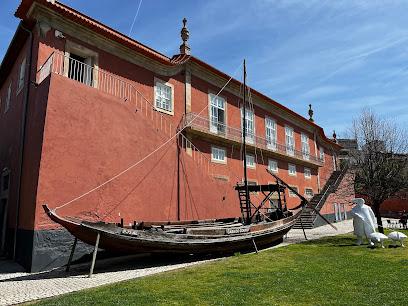
Parque Natural do Alvão
Discover the majestic landscapes and diverse wildlife of Parque Natural do Alvão, a must-visit national park in Portugal's stunning natural heritage.
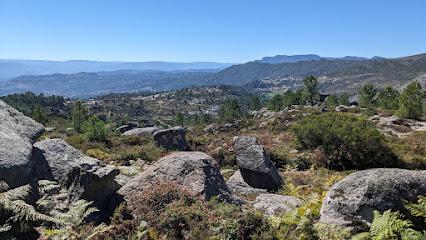
Lamego Cathedral
Explore the architectural beauty and historical significance of Lamego Cathedral, a must-visit cultural landmark in Portugal's enchanting town of Lamego.
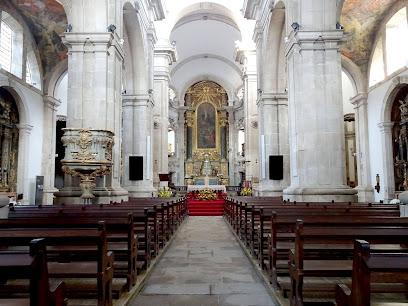
Castelo de Lamego
Explore the historic Castelo de Lamego, a medieval fortress offering breathtaking views of the Douro Valley and a glimpse into Portugal's rich history.
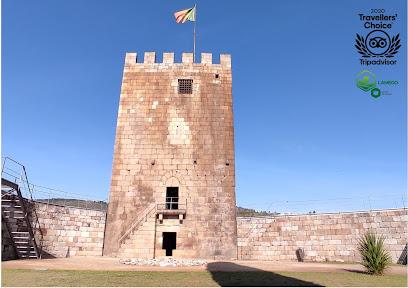
Miradouro Casal De Loivos
Discover the enchanting Miradouro Casal De Loivos, where stunning views of the Douro Valley create unforgettable memories for travelers.
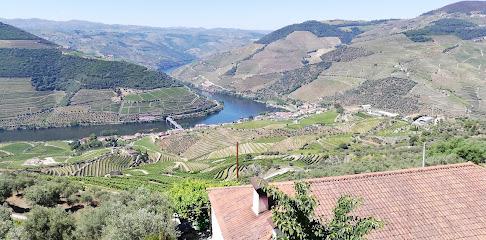
Igreja de São Gonçalo
Discover the breathtaking Igreja de São Gonçalo in Amarante, a stunning Catholic church rich in history and architectural beauty, nestled in a charming square.
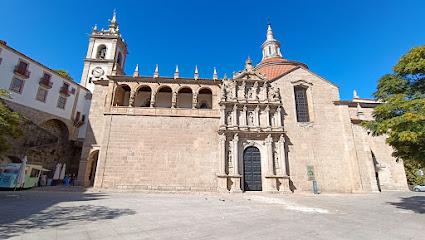
Essential places to dine
Restaurante Cardoso
Experience authentic Portuguese cuisine at Restaurante Cardoso in Vila Real – a culinary haven for every traveler.
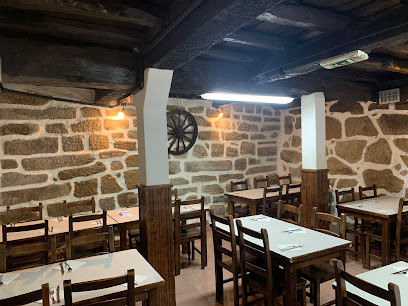
Adega O Sr. Vinho
Experience authentic Portuguese cuisine at Adega O Sr. Vinho in Vila Real - where tradition meets taste in every dish.
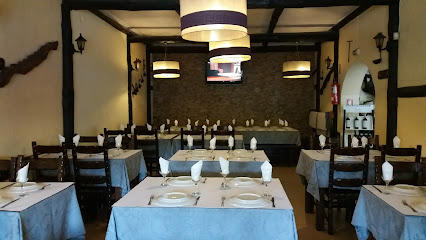
Restaurante Forneria
Experience the best of Portuguese cuisine at Restaurante Forneria in Vila Real - where tradition meets modern dining.
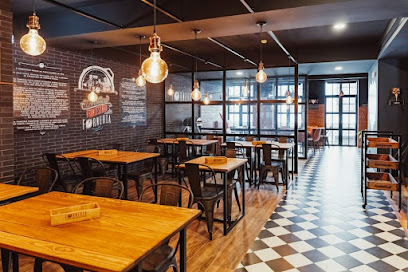
Ze.Come
Experience authentic Portuguese flavors at Ze.Come in Vila Real - where every meal is a celebration of local culinary traditions.
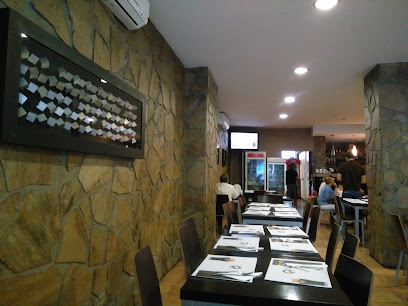
Casa de Pasto Chaxoila
Experience authentic Portuguese cuisine at Casa de Pasto Chaxoila in Vila Real – where tradition meets taste in every delightful dish.
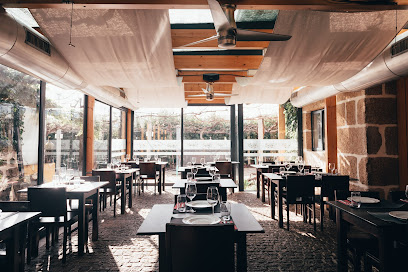
Restaurante Amadeus
Experience authentic Portuguese seafood at Restaurante Amadeus in Vila Real—where tradition meets flavor in every dish.
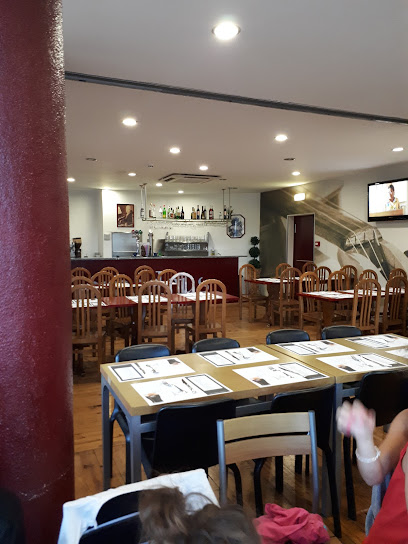
Quinta do Paço Hotel Rural
Experience tranquility and gourmet delights at Quinta do Paço Hotel Rural in Vila Real – your perfect getaway destination.
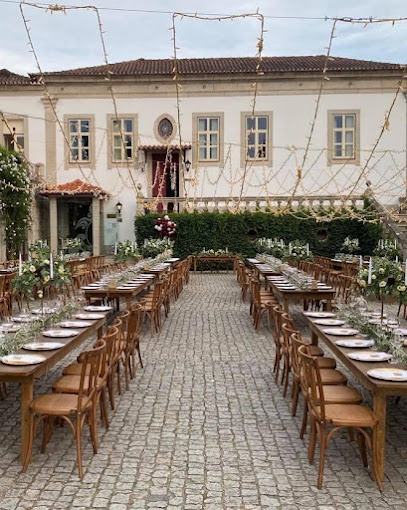
Restaurante Tralha
Discover authentic Portuguese cuisine at Restaurante Tralha in Vila Real - a culinary journey through rich flavors and local ingredients.
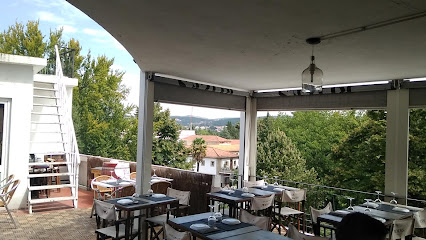
Restaurante Cave da Picanha
Experience the essence of Brazil at Restaurante Cave da Picanha in Vila Real – where rich flavors meet warm hospitality.
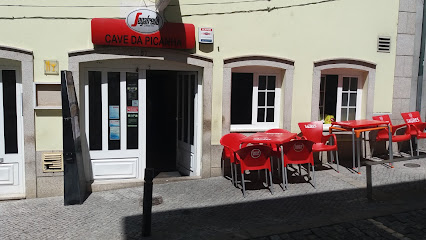
Restaurante Irmãos Padilha
Discover authentic Portuguese cuisine at Restaurante Irmãos Padilha in Vila Real - a must-visit dining destination for every traveler.
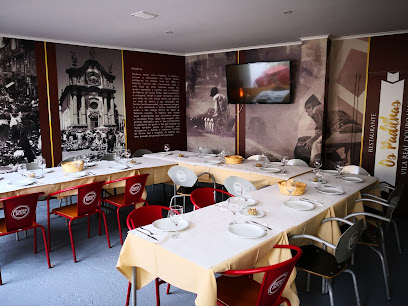
Restaurante Residencial Maria do Carmo
Savor authentic Portuguese cuisine in Vila Real at Restaurante Residencial Maria do Carmo - where tradition meets taste.
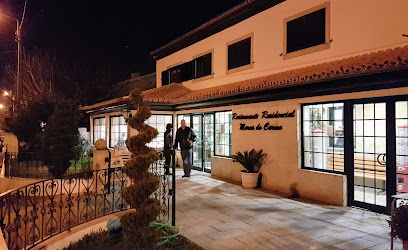
Montes de Hambúrgueres
Discover gourmet burgers bursting with flavor at Montes de Hambúrgueres in Vila Real – A must-visit destination for every food lover.
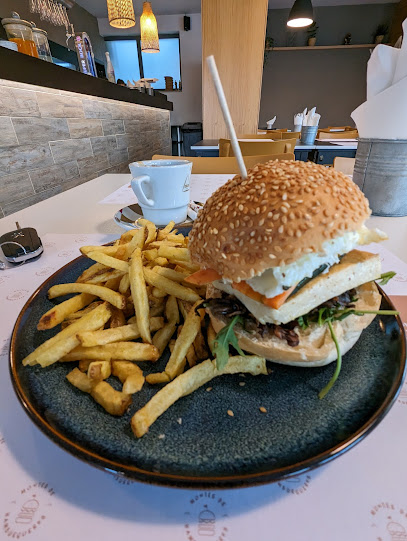
Restaurante Cais da Villa
Discover the flavors of Portugal at Restaurante Cais da Villa - where exquisite cuisine meets breathtaking views.
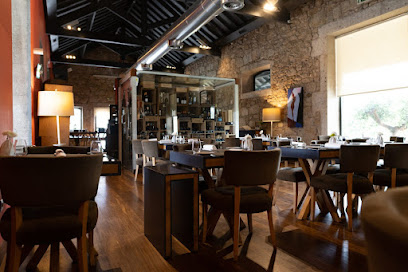
Restaurante Bons Tempos
Experience authentic Portuguese cuisine at Restaurante Bons Tempos in Vila Real - where every meal tells a story.
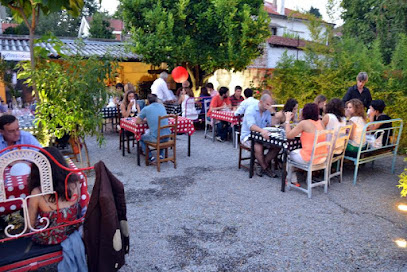
Terra da Montanha Restaurant
Experience authentic Portuguese flavors at Terra da Montanha Restaurant in Vila Real—where tradition meets culinary excellence.
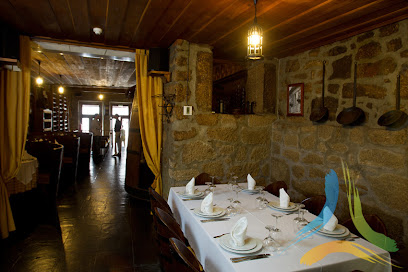
Markets, malls and hidden boutiques
Nosso Shopping
Experience the vibrant shopping scene and delightful dining options at Nosso Shopping in Vila Real, where retail therapy meets local culture.
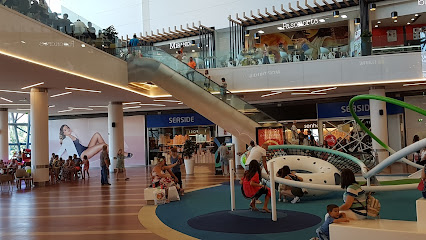
FNAC
Explore FNAC in Vila Real, the ultimate shopping hub for books, electronics, and more in a vibrant atmosphere.
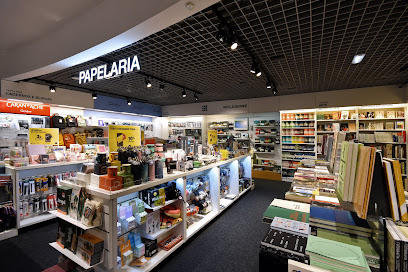
Refan Portugal - Vila Real
Discover the enchanting scents and beauty treasures at Refan Portugal in Vila Real, a must-visit destination for fragrance lovers and beauty enthusiasts.
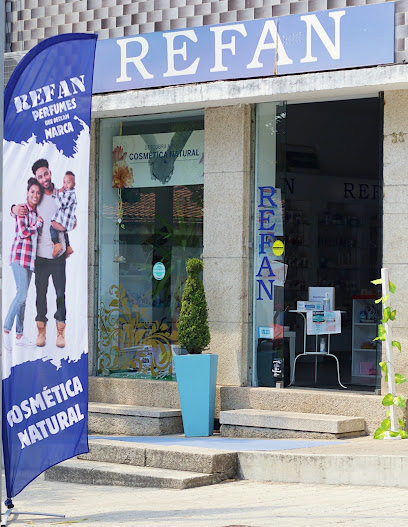
Ursa Menor
Explore Ursa Menor in Vila Real for unique local crafts and gourmet delights, perfect for souvenirs and authentic Portuguese experiences.
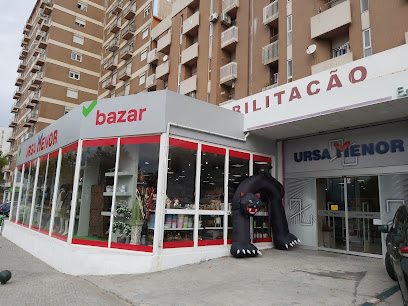
Bershka
Explore the latest fashion trends at Bershka in Vila Real, offering stylish clothing and accessories for every occasion.
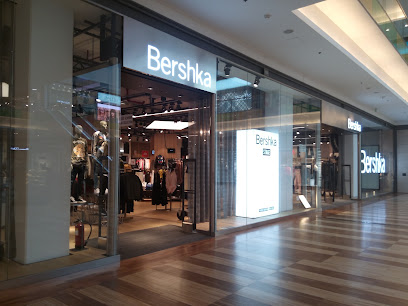
Massimo Dutti
Experience the elegance of Massimo Dutti in Vila Real, where high-quality fashion meets contemporary style for every occasion.
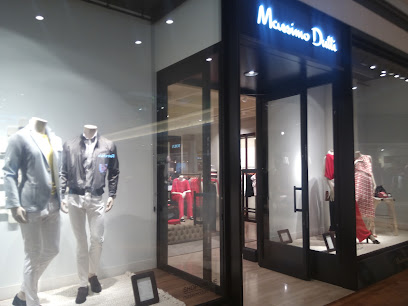
Livraria Traga-Mundos
Discover Livraria Traga-Mundos, Vila Real's charming book store offering a delightful selection of literature and a cozy atmosphere perfect for book lovers.
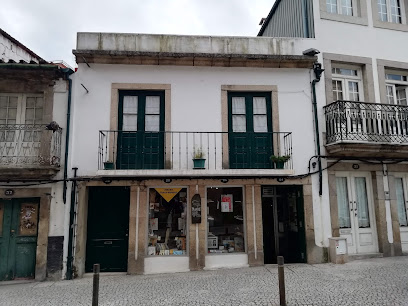
Boutique dos Relógios
Explore the elegance and craftsmanship of timepieces at Boutique dos Relógios, Vila Real's premier watch store offering styles for every occasion.
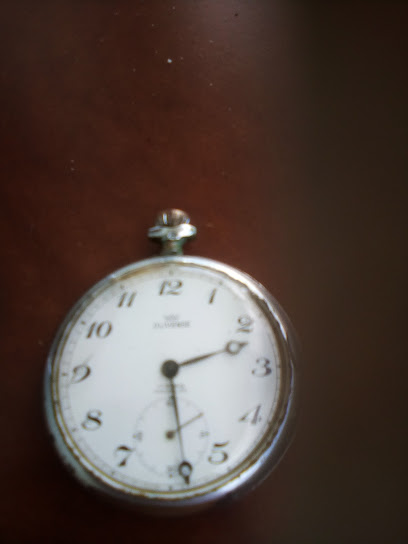
Shopping China
Explore the vibrant and diverse offerings at Shopping China in Vila Real, where local charm meets international flair in a delightful shopping experience.
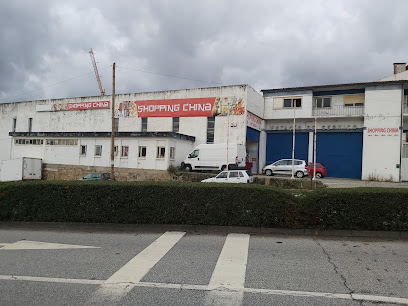
TIFFOSI
Explore the latest fashion trends at TIFFOSI in Vila Real, where style meets affordability in a vibrant shopping atmosphere.
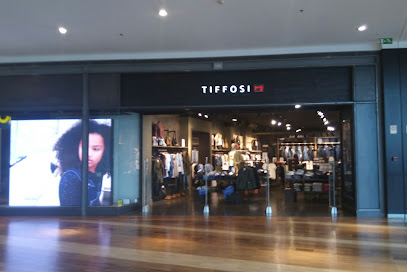
Boutique da Vila
Discover the essence of Portuguese fashion at Boutique da Vila, where contemporary style meets traditional charm in the heart of Vila Real.
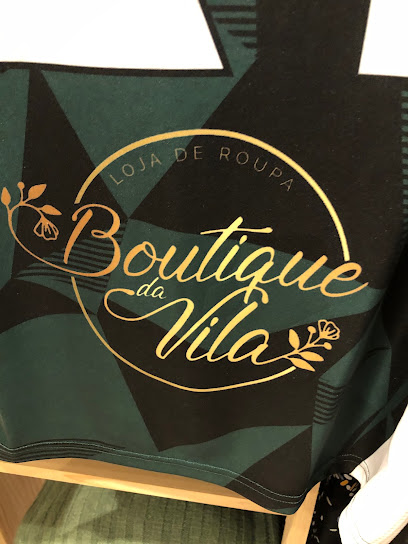
CALZEDONIA
Explore stylish swimwear and children's clothing at CALZEDONIA in Vila Real, the perfect shopping destination for fashion lovers.
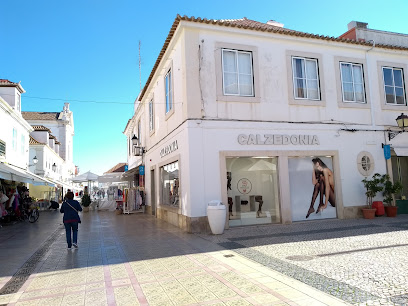
Claire's
Explore Claire's in Vila Real for trendy accessories, ear piercing, and fun toys - a shopping paradise for all ages.

MO
Explore contemporary fashion at MO Clothing Store in Vila Real, where style meets local charm in a trendy shopping experience.
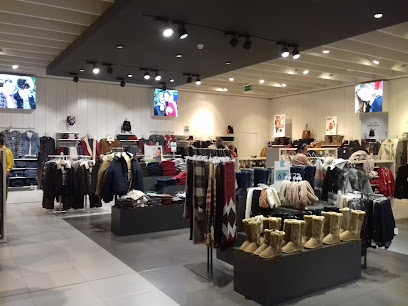
Jk Perfumaria - Manuel Fernando Da Fonte
Discover exquisite fragrances at Jk Perfumaria in Vila Real, where personalized service meets a charming selection of unique scents.
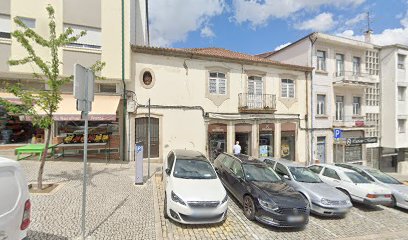
Essential bars & hidden hideouts
Xots Bar
Experience the vibrant nightlife of Vila Real at Xots Bar, where delicious drinks and a lively atmosphere await every visitor.
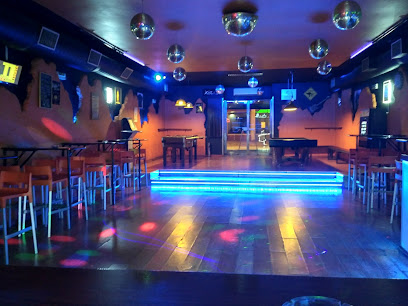
Bar Clip - Good Friends & Drinks
Discover vibrant nightlife and delicious cocktails at Bar Clip, the perfect spot for friends and relaxation in Vila Real.
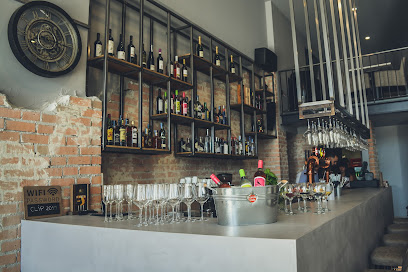
Metrópolis
Experience the vibrant nightlife of Vila Real at Metrópolis, a lively bar with a warm atmosphere and delightful drink selections.
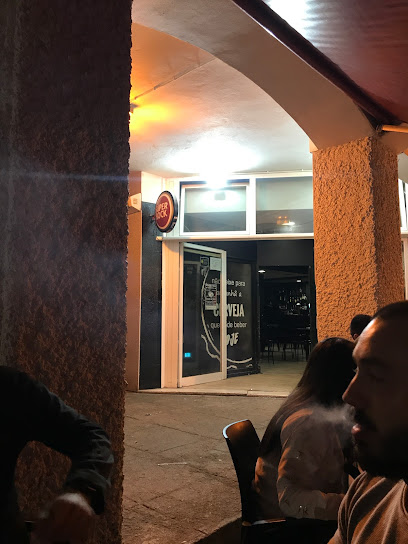
Salve Simpatia
Discover the vibrant atmosphere of Salve Simpatia in Vila Real, where locals and tourists gather for refreshing drinks and lively entertainment.
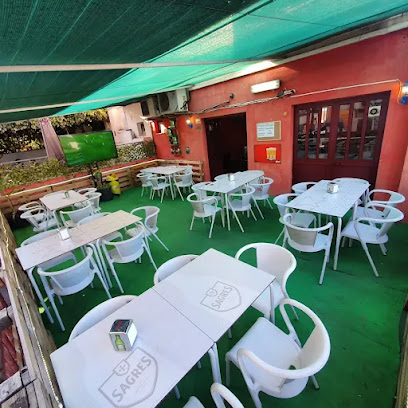
7even Lounge Bar
Experience the vibrant nightlife of Vila Real at 7even Lounge Bar, the perfect spot for affordable drinks and socializing.
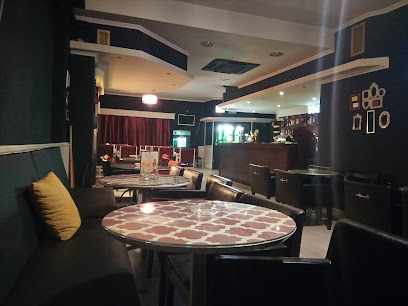
BFF - beer food & friends
Discover Vila Real's BFF - Beer Food & Friends, a gastropub offering local dishes and craft beers in a vibrant atmosphere perfect for all travelers.
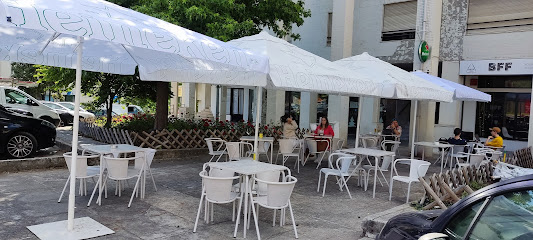
Kopos Bar
Experience the vibrant nightlife at Kopos Bar in Vila Real, where creative cocktails and lively music create the perfect atmosphere for an unforgettable night.
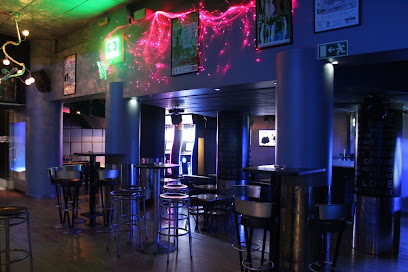
Bar Portinha
Experience the lively atmosphere of Bar Portinha in Vila Real, where delicious drinks and friendly service create unforgettable memories.
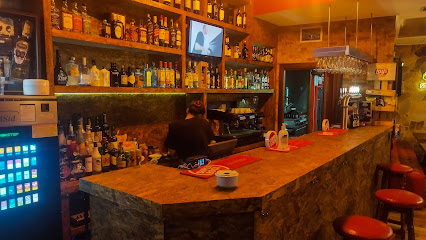
EME
Experience the joy of singing at EME Karaoke Bar in Vila Real, where laughter and music unite for an unforgettable night out.
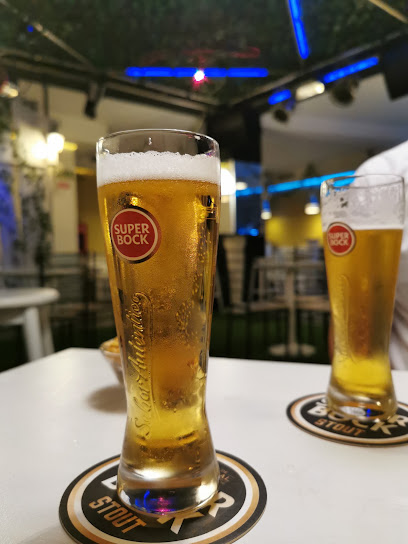
Café Mundial
Discover the heart of Vila Real at Café Mundial, where local drinks meet a warm atmosphere in a charming bar setting.
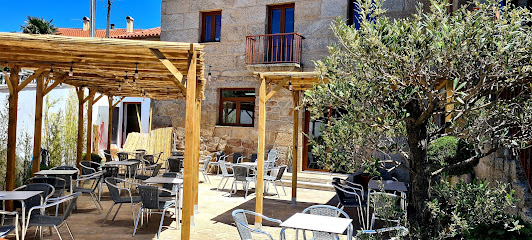
Lounge Shisha Bar & Restaurante
Experience exquisite cuisine and a vibrant shisha atmosphere at Lounge Shisha Bar & Restaurante in Vila Real.
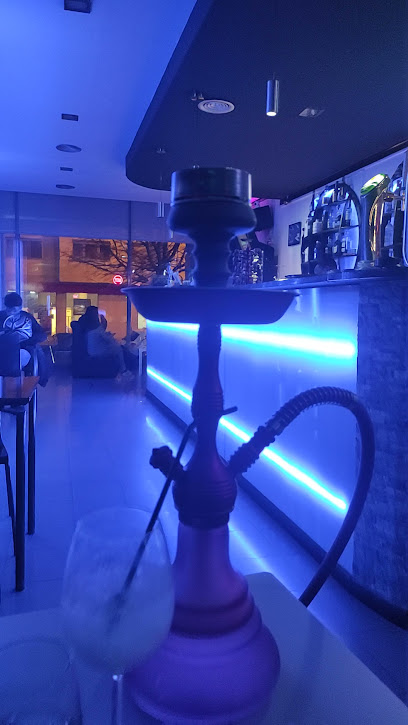
Novo Rumo
Discover Novo Rumo, a charming bar in Vila Real offering a cozy atmosphere, diverse drinks, and a taste of local culture.
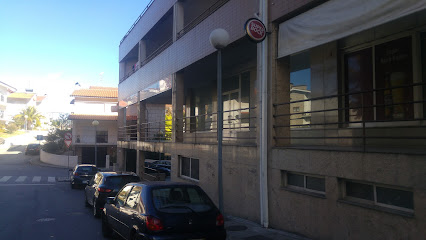
3
Discover the charm of 3 Lagares Wine Bar in Vila Real, where exquisite wines meet delightful tapas in a cozy atmosphere.
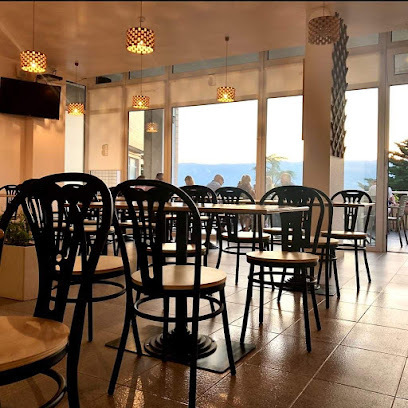
Empório Drinks & Food
Experience the lively ambiance and diverse drink selection at Empório Drinks & Food, the top bar in Vila Real for socializing and relaxation.
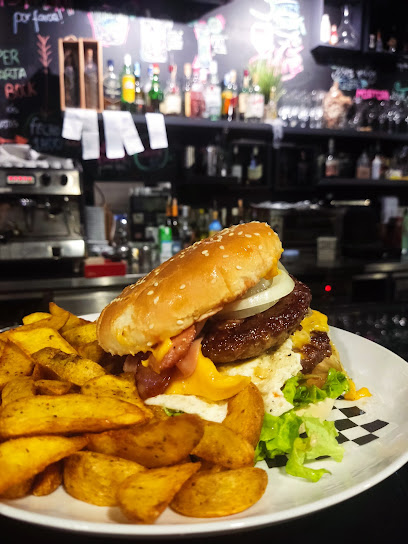
Travel experiences inspired by this city
Explore more travel diariesLocal Phrases
-
- HelloOlá
[oh-lah] - GoodbyeAdeus
[ah-deh-oosh] - YesSim
[seem] - NoNão
[now] - Please/You're welcomePor favor/De nada
[por fah-vohr/deh nah-dah] - Thank youObrigado
[oh-bree-gah-doo] - Excuse me/SorryDesculpe/Desculpa
[deh-skool-pay/deh-skool-pah] - How are you?Como estás?
[koh-moh ehs-tahsh] - Fine. And you?Bem. E tu?
[behn. eh too] - Do you speak English?Fala inglês?
[fah-lah een-glaysh] - I don't understandNão entendo
[now ehn-tayn-doo]
- HelloOlá
-
- I'd like to see the menu, pleaseGostaria de ver o menu, por favor
[goh-stah-ree-ah deh vehr ooh meh-noo, por fah-vohr] - I don't eat meatNão como carne
[now koh-moh kahrn] - Cheers!Saúde!
[sow-deh] - I would like to pay, pleaseGostaria de pagar, por favor
[goh-stah-ree-ah deh pah-gahr, por fah-vohr]
- I'd like to see the menu, pleaseGostaria de ver o menu, por favor
-
- Help!Ajuda!
[ah-joo-dah] - Go away!Vai-te embora!
[vah-ee-teh ehm-boh-rah] - Call the Police!Chama a Polícia!
[shah-mah ah poh-lee-see-ah] - Call a doctor!Chama um médico!
[shah-mah oom meh-dee-koo] - I'm lostEstou perdido
[eh-stoh pehr-dee-doo] - I'm illEstou doente
[eh-stoh doh-ehn-teh]
- Help!Ajuda!
-
- I'd like to buy...Gostaria de comprar...
[goh-stah-ree-ah deh kohm-prahr] - I'm just lookingEstou só a ver
[eh-stoh sooh ah vehr] - How much is it?Quanto custa?
[kwahn-too koos-tah] - That's too expensiveIsso é muito caro
[ee-soh eh mwee-tooh kah-roo] - Can you lower the price?Pode baixar o preço?
[poh-deh bah-ee-shahr ooh preh-soo]
- I'd like to buy...Gostaria de comprar...
-
- What time is it?Que horas são?
[keh oh-rahsh sao] - It's one o'clockÉ uma hora
[eh oom-ah oh-rah] - Half past (10)Meia hora (dez)
[may-ah oh-rah (dehsh)] - MorningManhã
[mahn-yah] - AfternoonTarde
[tahr-doo] - EveningNoite
[noyt] - YesterdayOntem
[ohn-tehm] - TodayHoje
[oh-zhey] - TomorrowAmanhã
[ah-mahn-yah] - 1Um
[oom] - 2Dois
[doh-eesh] - 3Três
[trehsh] - 4Quatro
[kwah-troh] - 5Cinco
[seen-koh] - 6Seis
[saysh] - 7Sete
[seh-teh] - 8Oito
[oy-toh] - 9Nove
[noh-veh] - 10Dez
[dehsh]
- What time is it?Que horas são?
-
- Where's a/the...?Onde está o/a...?
[ohn-deh ehs-tah ooh/ah] - What's the address?Qual é a morada?
[kwahl eh ah moh-rah-dah] - Can you show me (on the map)?Pode mostrar-me (no mapa)?
[poh-deh moh-shtr-meh (noo mah-pah)] - When's the next (bus)?Quando é o próximo (autocarro)?
[kwahn-doo eh ooh proh-kssee-moo (ow-toh-kah-roo)] - A ticket (to ....)Um bilhete (para ...)
[oom beel-yeh-tuh (pah-rah)]
- Where's a/the...?Onde está o/a...?
History of Vila Real
-
Vila Real was founded in 1289 by King Denis of Portugal. It was established as a settlement for noblemen and knights who had fought in the Portuguese Reconquista. The city's name, literally meaning 'Royal Town,' reflects its status as a favored residence for the nobility.
-
During the Middle Ages, Vila Real flourished as a center for agriculture and trade. The fertile lands around the town were ideal for cultivating cereals and vineyards, contributing to the region's wealth. The construction of noble manors and churches, such as the Gothic-style São Domingos Church, are testimonies to this era of prosperity.
-
The Cathedral of Vila Real, officially named the Cathedral of St. Dominic, stands as a crucial landmark in the town. Built in the 15th century, it is renowned for its Gothic architecture and intricate Manueline-style details. The cathedral has been a focal point for religious and cultural life in Vila Real for centuries.
-
One of the most iconic landmarks of Vila Real is the Casa de Mateus, an 18th-century baroque estate. The palace is famous for its elaborate architecture, beautifully landscaped gardens, and its reflection in the estate's pond, which creates a picturesque image. The residence is still owned by the Counts of Vila Real and functions as a cultural and historical venue.
-
Vila Real played a significant role during the Portuguese Civil War (1828-1834). The town was a stronghold for the liberal forces led by Pedro IV against the absolutist faction of his brother, Miguel I. Vila Real's strategic location made it a key site for several skirmishes and military actions during the conflict.
-
Vila Real is known for its vibrant traditional festivals, the most notable being the 'Nossa Senhora da Pena' festival, celebrated in September. This festival includes a blend of religious ceremonies, processions, music, dancing, and local gastronomy, reflecting the deep-rooted cultural traditions of the region.
-
In recent decades, Vila Real has undergone significant modernization while preserving its historical charm. The establishment of the University of Trás-os-Montes and Alto Douro in 1986 has transformed it into a regional educational hub, attracting students and fostering a vibrant community life.
-
Vila Real serves as a gateway to the Douro Valley, a UNESCO World Heritage site renowned for its terraced vineyards and Port wine production. The town's connection to this wine region has bolstered its economy and tourism, making it a popular destination for wine enthusiasts and history buffs alike.
Vila Real Essentials
-
Vila Real is located in the northern region of Portugal. The nearest international airport is Francisco Sá Carneiro Airport in Porto, approximately 100 kilometers away. From Porto, you can take a bus or rent a car to reach Vila Real. There are also train services, though they require a transfer at Régua. The journey by car from Porto typically takes around 1.5 hours.
-
Vila Real has a local bus network that connects different parts of the city, but the services might not be very frequent. Taxis are readily available and relatively inexpensive for short trips within the city. For exploring the surrounding Douro Valley and scenic routes, renting a car is highly recommended. Bicycles can also be rented for those who prefer an eco-friendly mode of transportation.
-
The official currency in Portugal is the Euro (EUR). Credit cards are widely accepted in hotels, restaurants, and larger shops in Vila Real. However, it is advisable to carry some cash, especially if you plan to visit smaller establishments or rural areas. ATMs are available throughout the city for cash withdrawals.
-
Vila Real is generally a safe city for tourists. However, it's important to take standard precautions, such as not leaving your belongings unattended and avoiding poorly lit areas at night. There are no specific neighborhoods with high crime rates targeting tourists, but staying vigilant and aware of your surroundings is always a good practice.
-
In case of emergency, dial 112 for immediate assistance. Vila Real has a local police station and several medical facilities, including a hospital. It is advisable to have travel insurance that covers medical emergencies. Pharmacies are available in the city where you can purchase over-the-counter medications for minor health issues.
-
Fashion: Do dress modestly, especially when visiting religious sites. Avoid overly revealing clothing. Religion: Do respect local customs and traditions. Always be quiet and respectful in churches. Public Transport: Do give up your seat to elderly passengers and avoid eating or drinking on public transport. Greetings: Do greet people with a handshake. A 'Bom dia' (Good morning) or 'Boa tarde' (Good afternoon) is appreciated. Eating & Drinking: Do try local delicacies and wines. Don’t rush meals; savoring your food is part of the local culture.
-
To experience Vila Real like a local, visit the Mercado Municipal where you can buy fresh produce and traditional Portuguese goods. Engage with locals at the cafes and bars; they are often friendly and eager to share stories about the region's history and culture. Don't miss a visit to Mateus Palace and the surrounding gardens. For a unique experience, explore the Douro Valley's vineyards and take a scenic drive along the N2 road, which offers breathtaking views of the region.
Trending Landmark in Vila Real
-
Fundação da Casa de Mateus
-
Vila Real Bus Terminal
-
Jardim da Carreira
-
Cathedral of Vila Real
-
Miradouro da Vila Velha
-
Capela Nova
-
Panoias Sanctuary
-
Museu da Vila Velha
-
Casa do Prado Guesthouse
-
Miradouro de Muas, Vila Real
-
Diogo Cão House
-
Centro de Ciência de Vila Real
-
Estátua de Carvalho Araújo
-
Visit Imobiliária
-
Pelourinho de Vila Real
Nearby Cities to Vila Real
-
Things To Do in Lamego
-
Things To Do in Guimarães
-
Things To Do in Chaves
-
Things To Do in Braga
-
Things To Do in Porto
-
Things To Do in Ponte de Lima
-
Things To Do in Bragança
-
Things To Do in Viana do Castelo
-
Things To Do in Aveiro
-
Things To Do in Coimbra
-
Things To Do in Salamanca
-
Things To Do in Santiago de Compostela
-
Things To Do in Tomar
-
Things To Do in Viseu
-
Things To Do in Caldas da Rainha
















